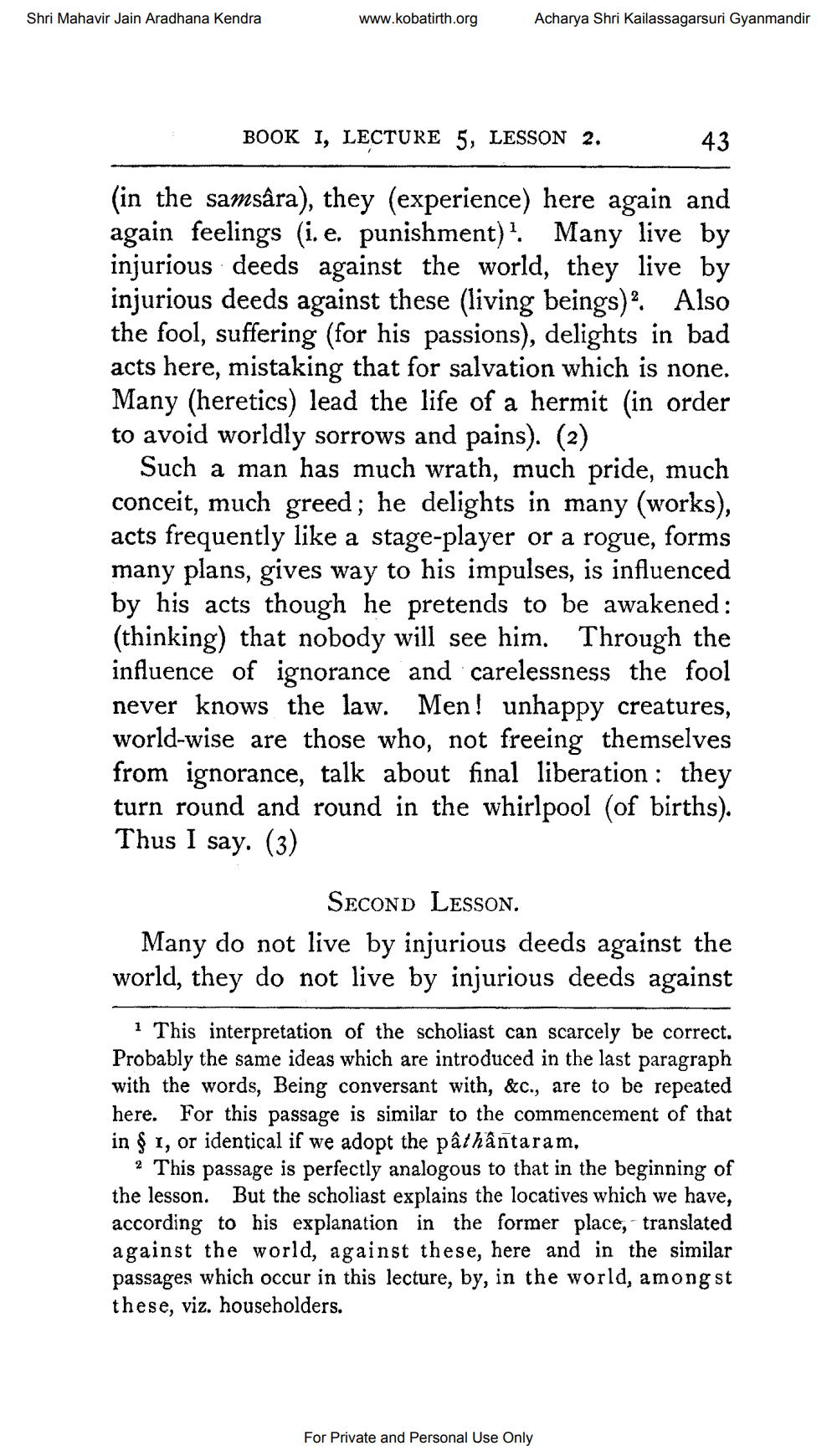________________
Shri Mahavir Jain Aradhana Kendra
www.kobatirth.org
Acharya Shri Kailassagarsuri Gyanmandir
BOOK I, LECTURE 5, LESSON 2.
43
(in the samsâra), they (experience) here again and again feelings (i. e. punishment). Many live by injurious deeds against the world, they live by injurious deeds against these (living beings). Also the fool, suffering (for his passions), delights in bad acts here, mistaking that for salvation which is none. Many (heretics) lead the life of a hermit (in order to avoid worldly sorrows and pains). (2)
Such a man has much wrath, much pride, much conceit, much greed; he delights in many (works), acts frequently like a stage-player or a rogue, forms many plans, gives way to his impulses, is influenced by his acts though he pretends to be awakened: (thinking) that nobody will see him. Through the influence of ignorance and carelessness the fool never knows the law. Men! unhappy creatures, world-wise are those who, not freeing themselves from ignorance, talk about final liberation: they turn round and round in the whirlpool (of births). Thus I say. (3)
SECOND LESSON.
Many do not live by injurious deeds against the world, they do not live by injurious deeds against
1 This interpretation of the scholiast can scarcely be correct. Probably the same ideas which are introduced in the last paragraph with the words, Being conversant with, &c., are to be repeated here. For this passage is similar to the commencement of that in § 1, or identical if we adopt the pâthântaram,
2 This passage is perfectly analogous to that in the beginning of the lesson. But the scholiast explains the locatives which we have, according to his explanation in the former place, translated against the world, against these, here and in the similar passages which occur in this lecture, by, in the world, amongst these, viz. householders.
For Private and Personal Use Only




